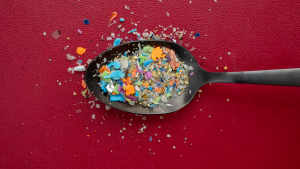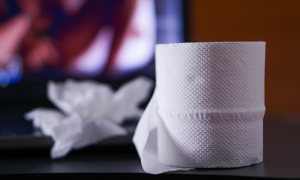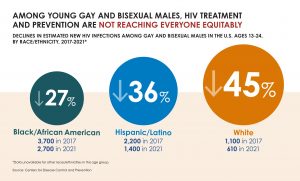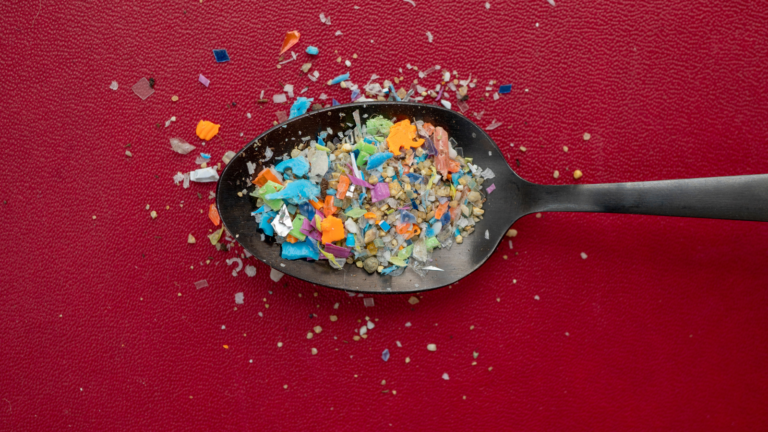Could microplastics be behind the drop in sperm count?
ONEnew study found that the testicles of both humans and dogs contained tiny little fragments of plastic. This debris, called microplastics, is thought to come from chemicals in our environment. This includes PVC and phthalates used to make everyday items such as plastic water bottles, food storage containers and toys.
Previous research has found microplastics throughout the human body – from the brain to the bloodstream to the lungs. They’ve also been found in semen, so the fact that a new study finds them in the testicles isn’t surprising. However, it raises concerns about the impact of our environment on reproduction.
For the study, researchers from the University of New Mexicoexamine the testicles from 23 humans and 47 dogs. Dog testicles were provided fresh by a local veterinarian who removes them during routine neutering procedures. The human testes came from cadavers aged 16 to 88 and had already been preserved.
The researchers explained that they included dogs because the way dogs produce sperm closely matches the way humans do. Also, dogs live in our homes. This means they are exposed to many of the same chemicals we are.
The researchers weighed and measured each testicle and then dissolved the biological tissue leaving only solids. About 75% of the solids that remained were determined to be microplastics. This is more than found in other parts of the body.
There is good reason to believe that microplastics are harmful to our reproductive health. But science has yet to determine exactly what they do to us or what health problems they cause. Previous research has found that phthalates reduce the ability of sperm to swim and cause DNA fragmentation in their heads. Other theories of how microplastics may interfere with reproduction include altering hormones during fetal development, causing cancer and triggering harmful inflammation. And—because of all this—microplastics can be behind well-documenteddecrease in sperm count.
The researchers found that sperm counts were lower in those dogs that also had higher levels of the chemical PVC. But this is only a correlation. The study can’t tell us whether PVC caused the sperm count to drop. The researchers were also unable to determine the number of sperm in the human testes because they came from cadavers.
We are surrounded by plastic and we are just beginning to learn the ways it can be harmful to our bodies. This study adds to the growing sense that microplastics are affecting our reproduction. More research will be needed to confirm these suspicions and understand how.
While research continues to seek answers, we could all reduce our individual exposure to plastics. We can do this by avoiding plastic water bottles, skipping meals and not microwaving in plastic containers. But experts agree that our reliance on plastics is not a problem that can be solved at the individual level.
More to explore

Could microplastics be behind the drop in sperm count?
A new study has found that the testicles of human men contained tiny bits of plastic, raising concerns about the impact of our environment on reproduction.

Could monkey behavior explain why men masturbate?
A new paper suggests there are biological and evolutionary reasons why we masturbate, and looks to our ape ancestors for evidence. There is evidence beginning about 40 million years ago that the ancestors of all monkeys and apes did masturbate.

Young men who have sex with men are driving progress in HIV prevention and treatment, but disparities remain
While the CDC reported a decline in overall new HIV infections, disparities in HIV prevention and treatment remain.

June is men’s health month
Every year in June we put special emphasis on the health needs of boys and men. Sexual health is important throughout life and involves more than just sex! Body image, relationships, understanding sexual anatomy (and staying healthy) are all big

FDA lifts restrictions on blood donations for men who have sex with men
In a long-overdue policy change, the FDA told blood banks they could begin accepting donations from gay and bisexual men in monogamous relationships without requiring a period of abstinence before donating.

Are penises getting longer?
Are penises getting longer? New research shows that average penis length has increased in recent decades. It matters?
The post Could Microplastics Be Behind Falling Sperm Counts? first appeared in American Sexual Health Association.
